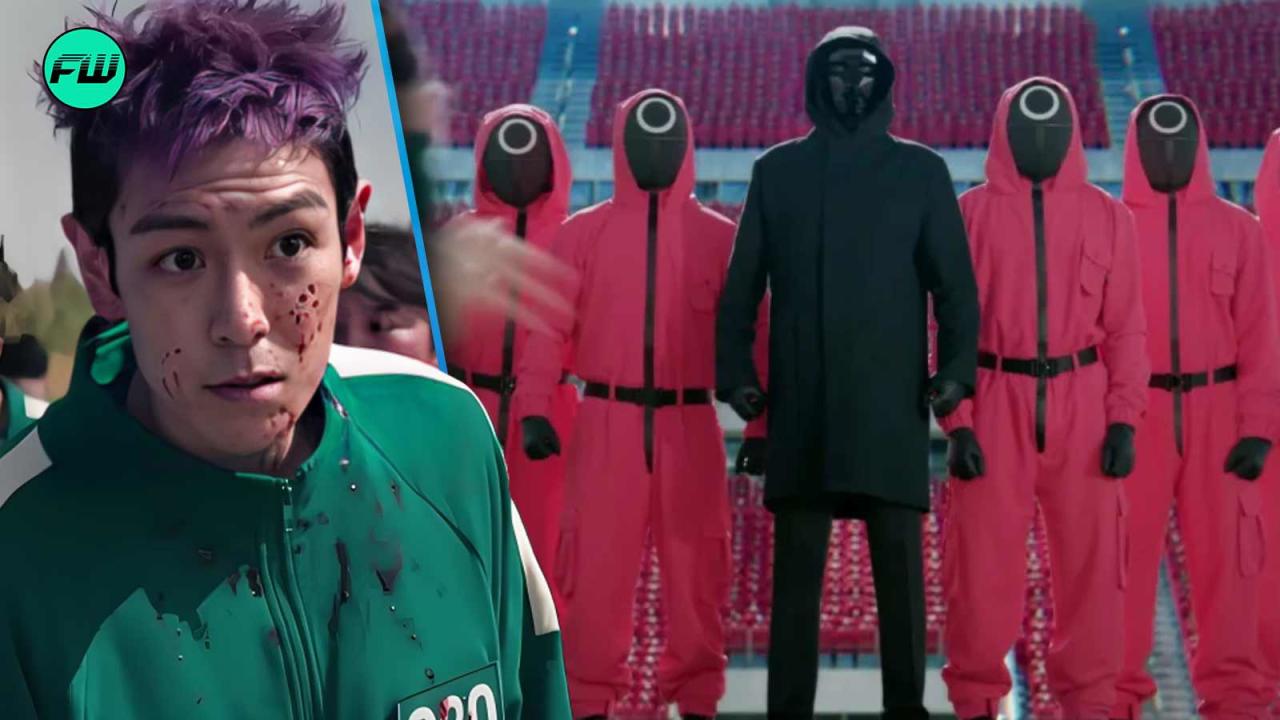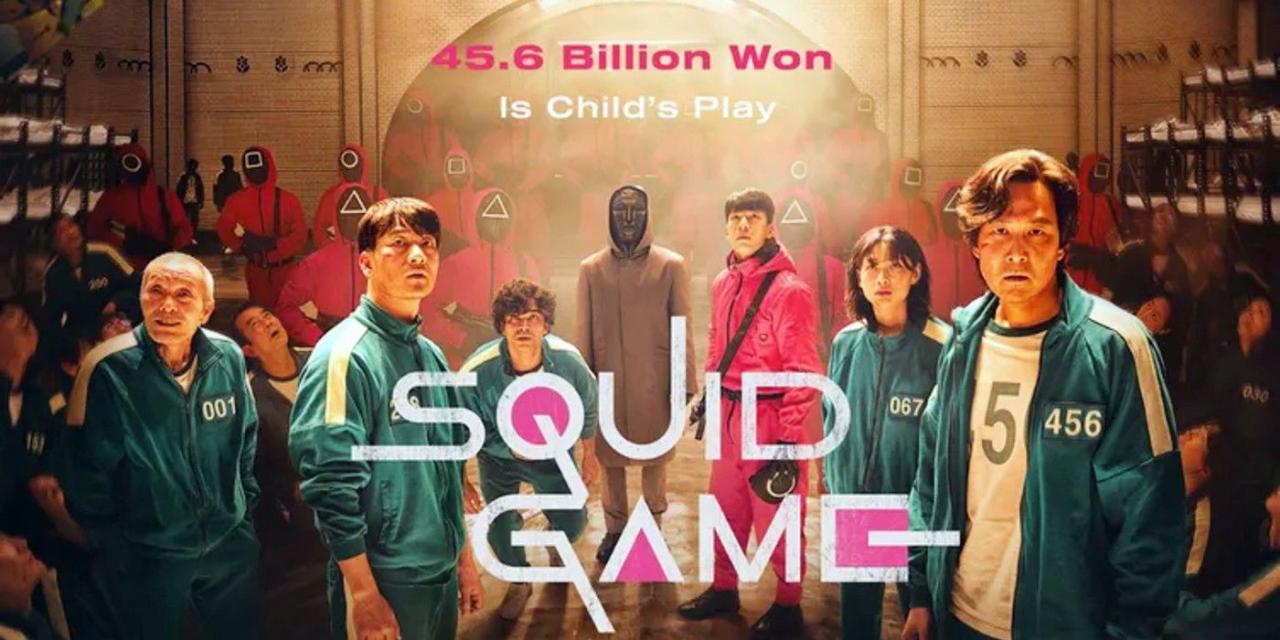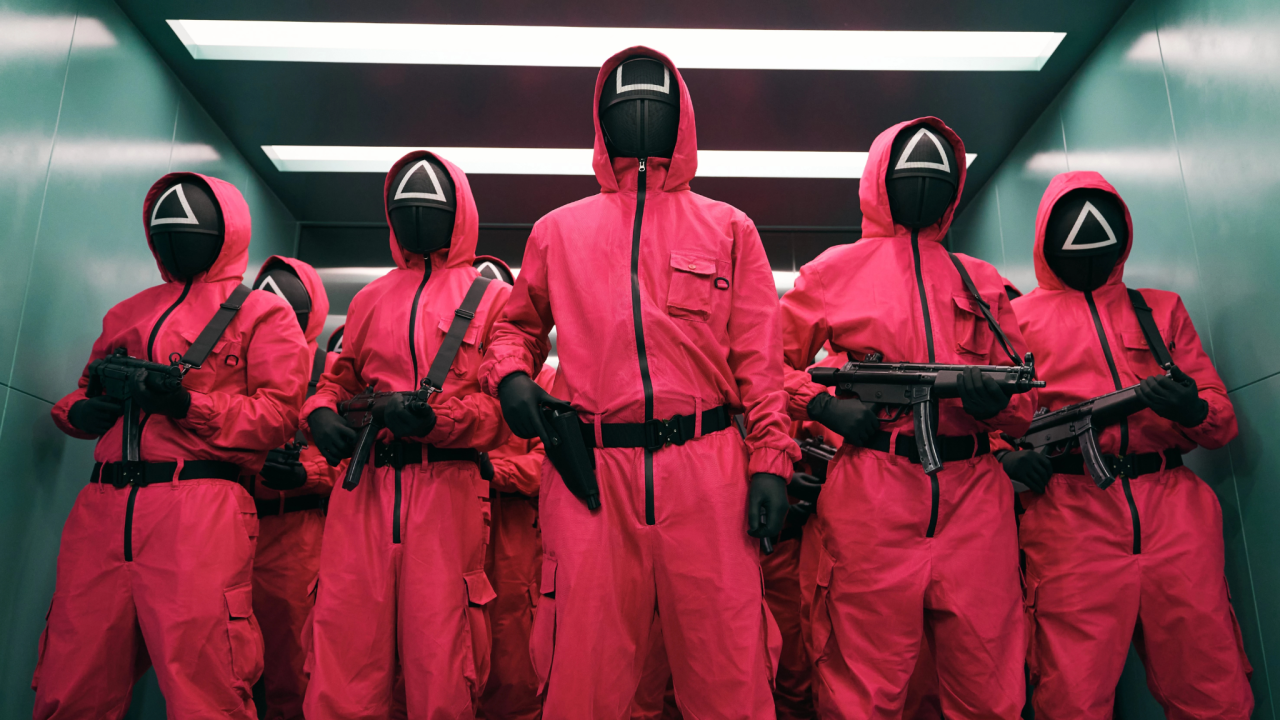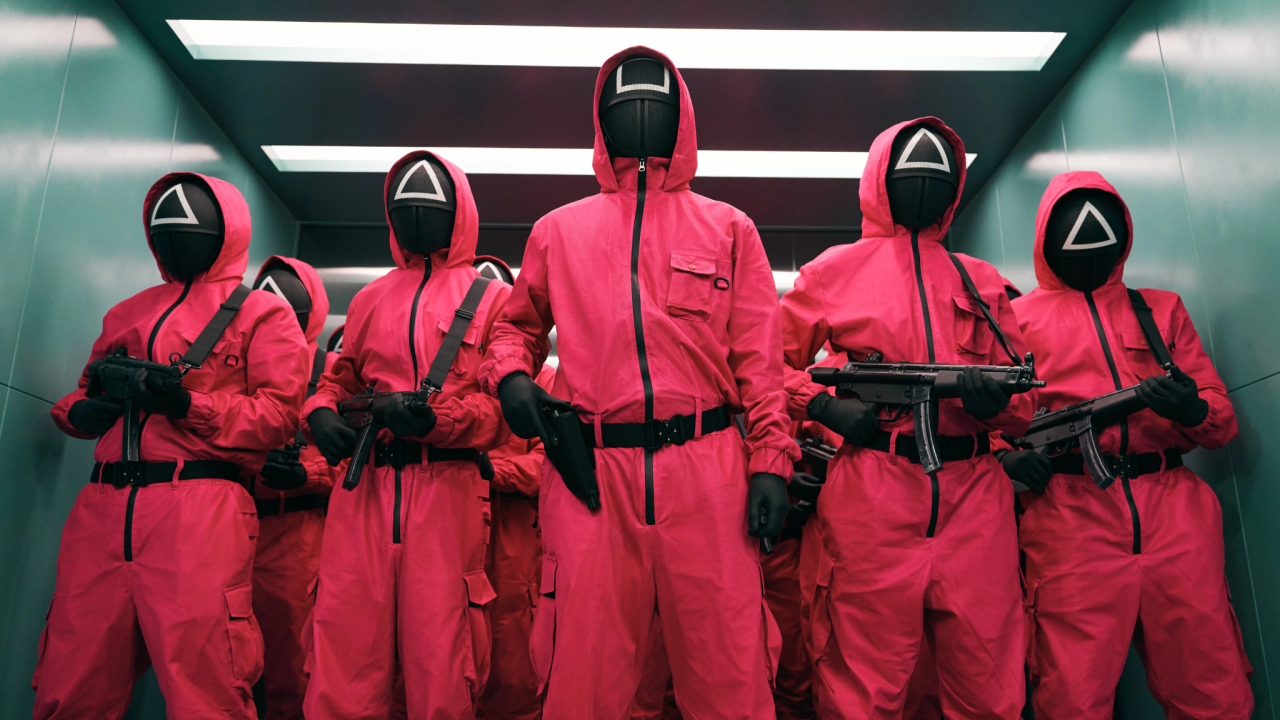Squid Game Thanos: Imagine a world where the brutal games of Squid Game meet the cosmic snap of Thanos. This exploration dives into the surprising parallels between these seemingly disparate universes, comparing their moral dilemmas, societal commentary, and the chilling choices made by their respective power players. We’ll examine the similarities in their motivations, methods, and devastating consequences, contrasting their approaches to solving—or destroying—society.
We’ll analyze the character arcs of Gi-hun and Thanos, uncovering shared traits and internal conflicts. We’ll also explore the visual similarities, from color palettes to symbolic imagery, and even create a hypothetical encounter between these two figures. Prepare for a thought-provoking journey through themes of choice, sacrifice, and the ultimate price of power.
Squid Game and Thanos: A Comparative Analysis: Squid Game Thanos
This article explores the striking parallels between Netflix’sSquid Game* and Marvel’s
Okay, so you’re thinking Squid Game Thanos, right? That whole “eliminate half the population” vibe? It’s a pretty dark concept, but consider this: the scale of loss in a tragedy like the jeju plane crash hits just as hard, maybe even harder on a personal level. It makes you think about the randomness of survival and how Thanos’ snap, while fictional, highlights a similar chilling unpredictability.
Squid Game Thanos’ actions are extreme, but real-world events show us the devastating impact of sudden loss.
Avengers
Infinity War*, focusing on their shared themes, character arcs, visual styles, and narrative structures. We’ll examine how both narratives tackle complex moral dilemmas, societal commentary, and the power of choice and sacrifice.
Squid Game’s Themes and Thanos’ Snap: A Comparative Analysis

Both
- Squid Game* and
- Thanos’ Snap* in
- Squid Game* showcases the desperation born from economic disparity, while Thanos’ snap, though intended to solve overpopulation, ultimately reflects a disregard for individual lives in pursuit of a perceived greater good. The contrasting approaches to solving societal problems – violent elimination versus systemic reform – are central to understanding the ethical implications of each narrative.
Avengers
Infinity War* present extreme scenarios that force characters to confront difficult choices regarding survival, morality, and the nature of justice. The societal commentary in both is stark, highlighting issues of inequality and the lengths people will go to for survival.
Okay, so you’re thinking about the Squid Game Thanos meme, right? That whole “snap” thing? It makes you think about sudden, massive loss, kind of like the impact of the jeju air crash , a devastating event that took many lives. It’s a stark reminder that even the seemingly invincible can face unexpected tragedy, much like how even the Squid Game’s seemingly unstoppable players met their demise.
| Motivation | Method | Outcome | Ethical Implications |
|---|---|---|---|
| The Game Master’s desire for entertainment and profit, possibly fueled by a twisted sense of social commentary | A series of deadly children’s games | Mass death and profound psychological trauma for the survivors. The underlying systemic issues remain largely unresolved. | Utterly unethical; prioritizes spectacle and profit over human life. |
| Thanos’ belief that halving the universe’s population is necessary to prevent resource depletion and societal collapse | The use of the Infinity Gauntlet to randomly eliminate half of all life | Widespread devastation and grief, leaving a scarred universe with lingering resource issues. | Highly questionable; even with good intentions, the means are brutally inhumane and disregard individual rights. |
Character Parallels: Gi-hun and Thanos, Squid game thanos

Gi-hun and Thanos, despite their vastly different contexts, share surprising similarities in their character arcs. Both are driven by strong determination and a warped sense of justice, albeit manifested in vastly different ways. Gi-hun’s initial desperation evolves into a complex struggle between survival and empathy, while Thanos’ conviction, though initially presented as altruistic, ultimately reveals a ruthless disregard for individual suffering.
Their internal conflicts – Gi-hun’s struggle between self-preservation and compassion, Thanos’ internal battle between his ideals and the cost of achieving them – are key drivers of their actions.
- Gi-hun’s Motivations: Initially driven by debt and desperation, he later seeks revenge and justice for the victims of the games, eventually finding a renewed sense of purpose.
- Thanos’ Motivations: Believes that his actions are necessary to save the universe from resource depletion and societal collapse, even if it means sacrificing half of all life.
Visual and Narrative Similarities: A Stylistic Comparison
Both
- Squid Game* and the
- Avengers* films employ distinct visual styles to enhance their narratives.
- Squid Game* utilizes a stark, often desaturated color palette, contrasting vibrant game sets with the grim realities of the players’ lives. The
- Avengers* films, on the other hand, frequently employ a broader spectrum of colors, often showcasing grand, sweeping visuals of battles and landscapes. Both narratives utilize symbolism effectively. The brightly colored game sets in
- Squid Game* juxtapose the dark reality of the games, mirroring the use of powerful imagery in
- Avengers* to symbolize hope, despair, and the struggle for power.
A hypothetical scene could depict Gi-hun encountering a battered Thanos amidst the ruins of a post-snap world, the desolate landscape mirroring the desolate game grounds. The muted color palette would be consistent with
So you’re into the whole Squid Game Thanos vibe? That chaotic energy is pretty awesome. Think about scaling that up – imagine a giant, menacing Squid Game-themed creature formed by a swarm of drones, like the incredible chinese new year drone dragon show. Now picture that dragon, but instead of festive, it’s all menacing reds and greens.
That’s some serious Squid Game Thanos-level spectacle, right?
- Squid Game*’s aesthetic, while Thanos’ presence would add an element of grand scale reminiscent of the
- Avengers* films. The suspense would build as Gi-hun, initially fearful, recognizes a shared sense of loss and disillusionment in Thanos’ eyes.
Fan Fiction: A Hypothetical Collaboration

Imagine Gi-hun, having survived the games, encountering a weakened Thanos, hiding in a desolate, post-snap wasteland. Gi-hun, initially wary, is struck by the weary look in Thanos’ eyes. He sees not a villain, but a man burdened by the consequences of his actions.
“You… you think you saved the universe?” Gi-hun asks, his voice barely a whisper. Thanos looks down, his gaze distant. “I thought I did,” he replies, his voice raspy. “But at what cost?”
The conversation would delve into the shared experiences of profound loss and the ethical implications of their actions. They would discuss the true cost of their “solutions” and the importance of empathy and understanding.
The Power of Choice and Sacrifice: A Thematic Exploration
Both
- Squid Game* and the
- Avengers* saga highlight the significance of choice and sacrifice. Characters in both narratives grapple with difficult choices, often facing moral compromises. In
- Squid Game*, players must choose between survival and their morality. In
Avengers*, heroes sacrifice their lives to protect others. The types of sacrifices vary – personal sacrifices, moral compromises, and acts of selflessness – but the impact of these choices shapes the narrative arc of both stories. The choices made by both Gi-hun and Thanos, and the consequences that follow, illustrate the weight of decisions made under immense pressure and the lasting impact of those decisions on the characters themselves and the world around them.
Last Point
Ultimately, the comparison between Squid Game and Thanos reveals fascinating insights into human nature and the complex ethical dilemmas surrounding power, control, and the pursuit of a “better” world. While their methods differ drastically—violent games versus a universe-altering snap—both narratives force us to confront uncomfortable truths about inequality, survival, and the devastating consequences of unchecked ambition. Whether through systemic reform or brutal elimination, the question remains
at what cost do we strive for a utopian ideal?
Top FAQs
What are the main differences in the philosophies of the Game Master and Thanos?
The Game Master seeks control and entertainment through exploitation, while Thanos believes his snap is a necessary sacrifice for the greater good, even if it’s achieved through mass murder.
Could Thanos’ snap have been prevented?
This is a complex question open to interpretation. Some argue alternative solutions existed, while others believe Thanos’ actions were inevitable given his perspective.
How do the visual styles of Squid Game and the Avengers films differ?
Squid Game uses a more muted, often desaturated palette to emphasize the bleakness of its setting, while the Avengers films typically feature brighter, more vibrant colors and a more epic scale.
What kind of systemic reforms could have addressed the issues raised in Squid Game?
Potential solutions include addressing wealth inequality, providing better social support systems, and promoting greater economic opportunity for all.
